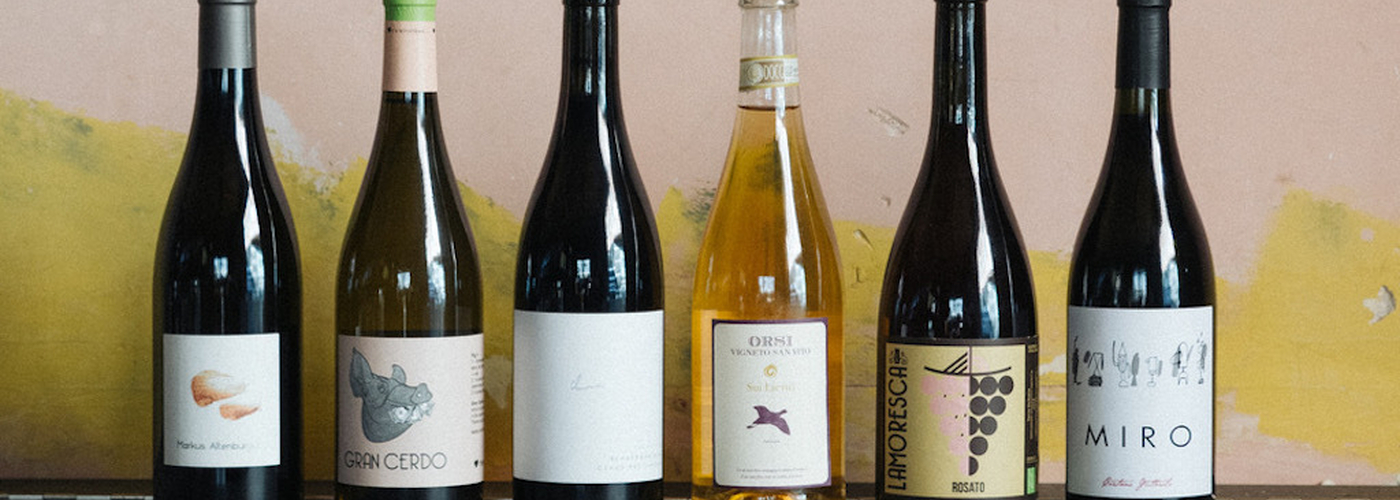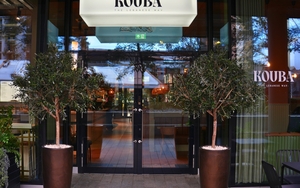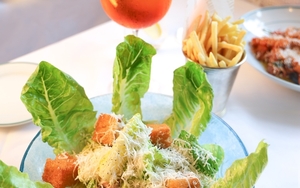We speak to local experts about what it actually is and where you can get hold of some during lockdown
It’s one of the most divisive topics in the world of wine; its advocates frothing with, some say, a cult-like obsession and its detractors dismissing the whole thing as emperor’s new clothes. But what is natural wine and why is it so controversial?
Natural doesn’t have to mean cloudy, orange wine that tastes like cider
The FT’s Tim Hayward complained that one example tasted 'as if someone gave a five-year-old a home-brew kit, some Toilet Duck and an Alka-Seltzer,' while Confidentials’ Gordo reckons 'it's proof that Millennials are really fucking stupid.' Others are more open minded and many restaurants are now offering - in whole or part - a natural, biodynamic or organic wine list.
Lockdown is a great time to order a bottle and decide for yourself. We talk to some local wine bods about their views on the trend.

What the hell is natural wine?
One of the reasons this is confusing is because there isn’t a formal classification or criteria for natural wine. Close friends of natural wine like the biodynamic and organic methods have defined rules, but natural wine is still somewhat of a free spirit. The basic philosophy is an organic, hands-off approach.
Kim McBride, former sommelier at Erst and The Creameries explains: “To me, a natural wine should have hardly any intervention in the vineyards and the winery; so no chemicals on the vines, no added sulphites in the wine, just grapes left to do their thing.”
Sara Saunby, director at Salut Wines agrees that low intervention is key, but adds, “When a wine is described as natural it tends to mean that it is from small scale, independent wine makers who are using sustainable farming, and/or organic, and/or biodynamic practices. There are probably no additives, and sulphur - which helps preserve the grapes - will be low or possibly not used at all.”
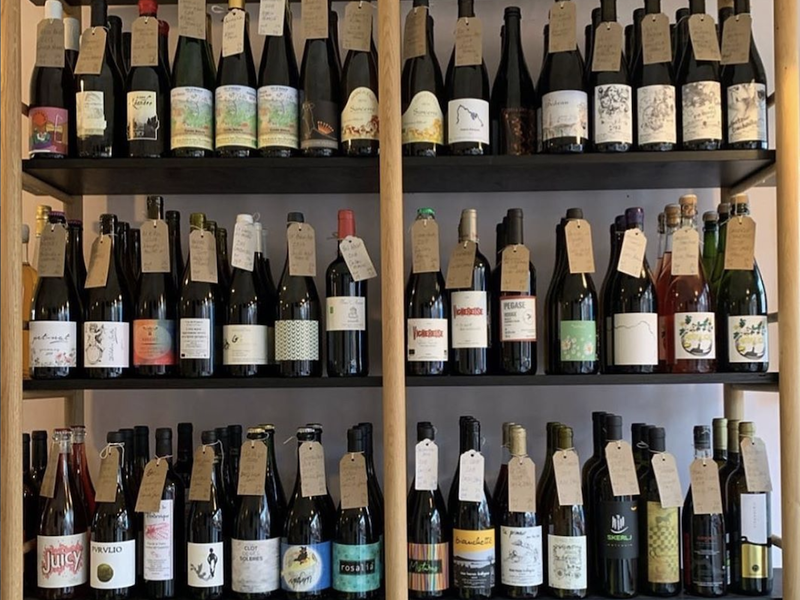
Caroline Dubois from Isca Wines in Levenshulme and former sommelier at Where The Light Gets In explains that these wines are also more likely to be vegan/vegetarian: "Young wines are hazy and contain tiny molecules like proteins, tannins, tartrates and phenolics. This is completely natural and not harmful, however most wine drinkers like their wines to be clear. If you give some time to the wine, if you leave it long enough it will stabilise on its own and self-fine. However, traditional wine makers have been intervening to help speed the process by using fining agents like albumen (egg whites), casein (milk protein), isinglass (fish bladder protein) and gelatin (animal protein) for this purpose. We don’t use wine that has been through a fining process as we believe in low intervention wine making.”
Kim thinks the lack of rules can be good and bad, “It’s the reason why we see so many crazy, experimental wines out there. But it can also allow producers and suppliers to make profit out of faulty wines under the guise of being natural and trendy.”
**😊🚐 WE ARE NOW DELIVERING 🚐😊**
We’ve got 16 mixed cases available from around the globe and there’s something for everyone!
Deliveries should be with you a couple of days after you place your order.
We'll be adding more cases so keep your 👀 peeled!https://t.co/LkooFEm1RI pic.twitter.com/2ccenis1he
— Salut Wines (@salutwines) April 22, 2020
Why do people get so excited about natural wine?
The environmentally friendly approach is one of the reasons natural wine is so popular with the climate-conscious and the commitment to this method of farming is hardcore. Kim explains, “It takes a LOT of skill to make a great natural wine, you can’t just spray the vineyards with pesticides if there is an infestation and you can’t add extra sulphites if the wine is a bit volatile at bottling, this means that every time a winemaker makes the decision to produce natural wines, they are taking a huge risk."
Caroline enthuses, “Natural wine is about life. It’s about the way we are in this world and our relationship with wildlife, encouraging biodiversity and engaging with the very specificity of where we are - terroir. It is about caring for the soil, the grapes and the life growing and existing on the vineyard. And it’s about celebrating the labour that this care requires, ethically and responsibly. It’s not a style, it’s a way of being.”
But it's not just about worthy farming methods and points for effort. For some, the flavours are really exciting too. "I’m always looking for something that I’ve never tasted before," Kim tells us, "I tasted some Croatian orange wine at Aumbry and realised that there was this whole other world of crazy, funky flavours."
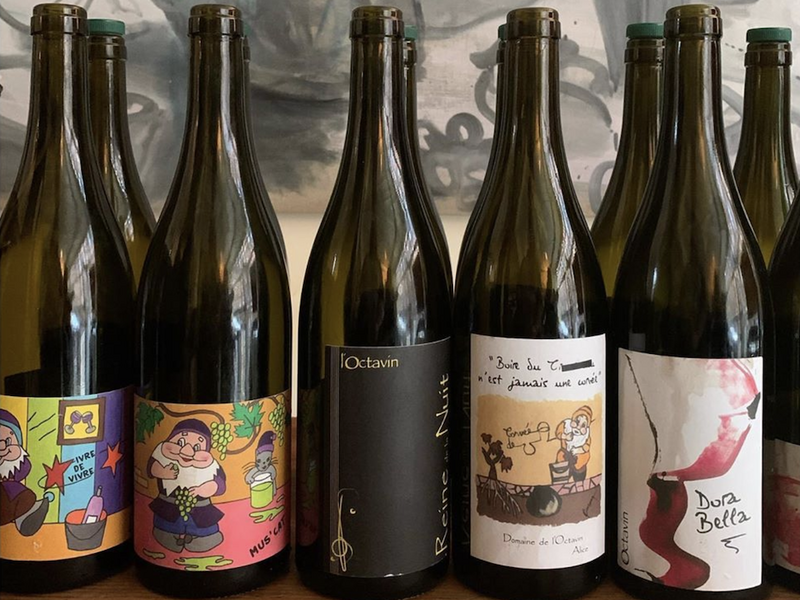
So why do some people dislike the idea of natural wine?
Sceptics tend to bring up the rich history of traditional winemaking and might suggest that natural wine is a new hipster fad which makers a mockery of hundreds of years of winemakers perfecting their craft.
Frances Bentley - buyer for a national brewery and regional wholesaler and currently sitting exams for the prestigious Master of Wine qualification - explains: "I think there is a suspicion of anything which is irregular, I also feel that there is plenty of wine in the category which is genuinely not enjoyable as all the winemaking faults are exposed. In conventional winemaking, these wines would be deemed a failure but because they can be sold as natural wine, some are given praise which I am dismissive of. Part of the issue is that there is no legal delineation of the practices – the French have only very recently defined the term and even this is causing controversy! Consumers are still a confused by what natural wine is, and who can blame them when the industry can’t decide?"
Caroline Dubois reasons otherwise, “We have this false romantic concept that wine is simply fermented grape juice, harvested by hand with love. Unfortunately conventional winemaking is far off being that. It is a highly industrial and manipulated product. There are no rules yet to oblige winemakers to actually put on the label what was used throughout the process and what is actually in the bottle. Most conventional wines are highly manipulated product and are dead in the bottle.”
View this post on InstagramWe can’t wait to get these packs into people’s hands. Putting these packs together gave us the chance to support a close friend in @curingrebels , the cheese industry in @thecourtyarddairy and winemakers based further afield via @vinetrail @tuttowines and @newcomer_wines 1) Orange and spicy - Berwick Edge cheese, Goan Salami, Enderle & Moll Weiss & Grau ’18. 2) Rustic - Sparkenhoe Red Leicester cheese, Chori’zove, Ad Vinum Welcome ’18. 3) Classic - Young Buck cheese, The Brighton Salami, Domaine Lissner Classique Z ’17. Available to reserve via our shop online. See website for order and delivery details. 📷 @hatton511 #manchester #highergroundmcr #naturalwine #stayathome #drinkathome #vinetrail #tuttowines #newcomerwines #supportlocal #hospitality
A post shared by Higher Ground (@highergroundmcr) on
Is natural wine an acquired taste?
Despite not being the biggest advocate of the natural wine trend, Frances doesn't think this is always the case. “I think this is one of the most misleading things about natural wines – the spectrum of flavours is huge and some of these wines do behave like a ‘conventional’ wine. The absence of added sulphur or inoculation can mean that there is an increase in the aromatic spectrum. This all depends on the winemaker though – there are amazing producers who make conventional wines and natural wines, and there are the not-so-good producers in both categories as well.”
She thinks critics like Tim Hayward’s comments “have probably helped seal the image of natural wines as all orange fizzy acid bombs, but the category is more nuanced than that. I agree that the cidery ones aren’t my favourite, but the more elegant styles produced now in Beaujolais and the north of Italy really put paid to the idea that natural wine is just fizzy rubbish.
"Some of the wines produced in France, for example, are natural and you wouldn’t necessarily be aware of it as they behave like conventional wines. In Champagne there are plenty of excellent natural wine producers but they aren’t cidery. Some of the most iconic champagne producers in the world – Agrapart, Larmandier-Bernier, Francoise Bedel - all use organic or biodynamic and low intervention methods. A lot of wineries subscribe to these methods, but perhaps don’t subscribe to the full on hipster natural wine image that people have in their mind’s eye.”
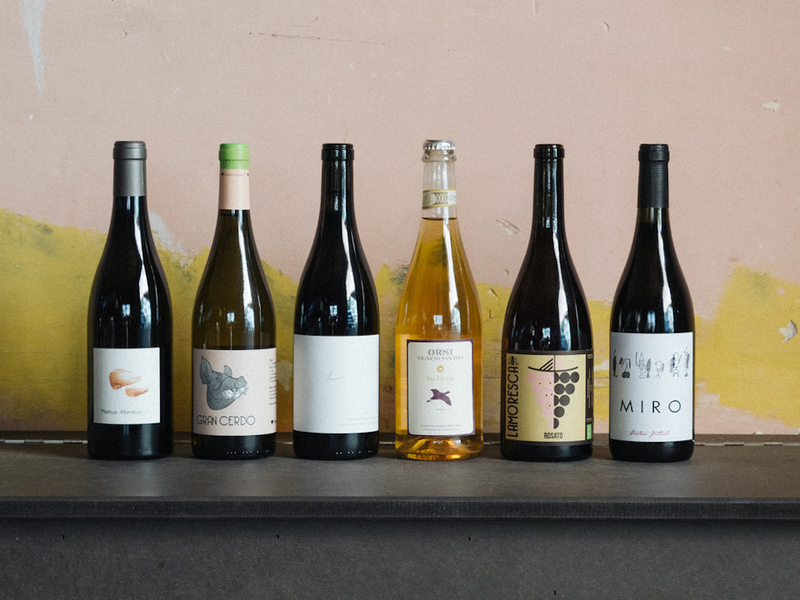
Kim agrees. “Natural doesn’t have to mean cloudy, orange wine that tastes like cider, there are thousands of clean, sophisticated, low intervention wines out there you just need to know where to look. So much high end, traditional wine would class as natural. When I was at The Creameries and before that at Erst, I tried to incorporate beautiful, traditional Beaujolais or Jura wines into the lists and when people ordered them I took great pleasure in announcing that they were natural.”
Jospeh Otway head chef at Higher Ground thinks it's a case of knowing where to look. “It’s easy to get a bad bottle because not all natural wine is good, but not all conventional wine is good! Forget the labels, it’s about good wine that also happens to be produced without chemicals.
"If you open a Savagnin or something from Arbois or Jura and you taste it with the wrong thing it can be too much. But if you drink it with the right food it’s a totally different experience. The wine that we select is from small producers that we believe in. If it wasn’t delicious we wouldn’t stock it. We spend hours scrupulously searching to find the bottles that are exciting to us.”
Sara agrees. “I’ve tasted many wines which are typical of their grape and region which turn out to be made with a very hands off, low intervention style and could be termed natural. But then I’m never surprised if I get a slightly oxidised wine and it tuns out to be a natural wine. I suppose until there is a definitive natural wine with rules attached like there is for organic and biodynamic wines there will not be a reliable flavour profile. I’d be surprised if (critics) haven’t enjoyed wines which they didn’t know could feasibly be described as natural.”
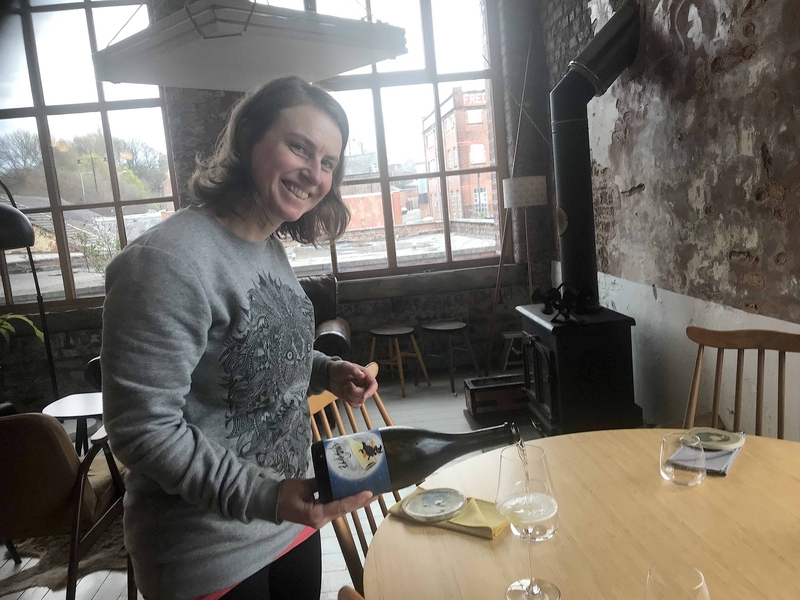
Why is natural wine more expensive?
Caroline believes the price is fair for the work involved. “There is a lot of exploitation and slavery in food picking in Europe unfortunately. Good value is a fair price for the winemaker in relation to their hard work and labour.”
Sara agrees. “When it is done well, natural wine-making isn’t just standing back and doing nothing, these wines represent the land they are from and are labour intensive. Not using pesticides in the vineyard means that the vines and the grapes have to be meticulously looked after, the grapes will be hand harvested rather than machine harvested, the winery has to be scrupulously clean as chemicals won’t be used to correct or mask any faults. Also economy of scale isn’t an option with these wines, they are small scale production.”
Curious? These places can deliver natural wine (and more) to your door...
If you're interested in learning more about the processes and people behind natural wines, Isca and Higher Ground are currently running 'meet the winemaker' events on Instagram live - see their social channels for more information.
Salut will be running online wine tastings over the coming weeks, get in touch with them for more info.





